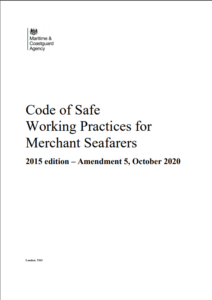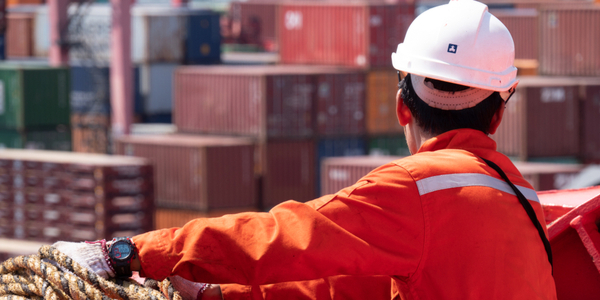The UK launched the 2020 amendment Code of safe working practices for merchant seafarers focusing on improving the health and safety of the crew primarily on board UK registered ships.
The Code covers all the potential risks a seafarer could deal with onboard, from ambient factors, such as noise, vibration, lighting, ultra-violet light, non-ionising, radiation and extreme temperatures to health risks, such as fatigue and impacts on mental occupational health.
It is highlighted that
The MCA intends to issue regular updates to the Code to ensure that it remains relevant and reflects changes in standards and in working practices. Updates will be considered by the industry working group and will be subject to wider consultation before final agreement.
In general the Code states that it is the duty of shipowners and employers to protect the health and safety of seafarers and others so far as is reasonably practicable. The principles that should underpin health and safety measures are:
- the avoidance of risks, which among other things includes the combating of risks at source and the replacement of dangerous practices, substances or equipment by nondangerous or less dangerous practices, substances or equipment;
- the evaluation of unavoidable risks and the taking of action to reduce them;
- the adoption of work patterns and procedures that take account of the capacity of the individual, especially in respect of the design of the workplace and the choice of work equipment, with a view in particular to alleviating monotonous work and to reducing any consequent adverse effect on workers’ health and safety;
- the adaptation of procedures to take account of new technology and other changes in working practices, equipment, the working environment and any other factors that may affect health and safety;
- the adoption of a coherent approach to management of the vessel or undertaking, taking account of health and safety at every level of the organisation;
- giving collective protective measures priority over individual protective measures;
- the provision of appropriate and relevant information and instruction for workers.
When it comes to having a healthy lifestyle onboard and following a safety culture, seafarers should keep in mind the following
- clearly defined expectations;
- good communications;
- clear leadership;
- good planning;
- risk awareness;
- accountability;
- good safety culture; and
- effective knowledge management.
Moreover, the Code includes recommendations and best practices about operating onboard all kinds of vessels, as well as what to be extra cautious about and how to deal in a challenging situation.
Concluding, to learn more you may click on the paper herebelow































































